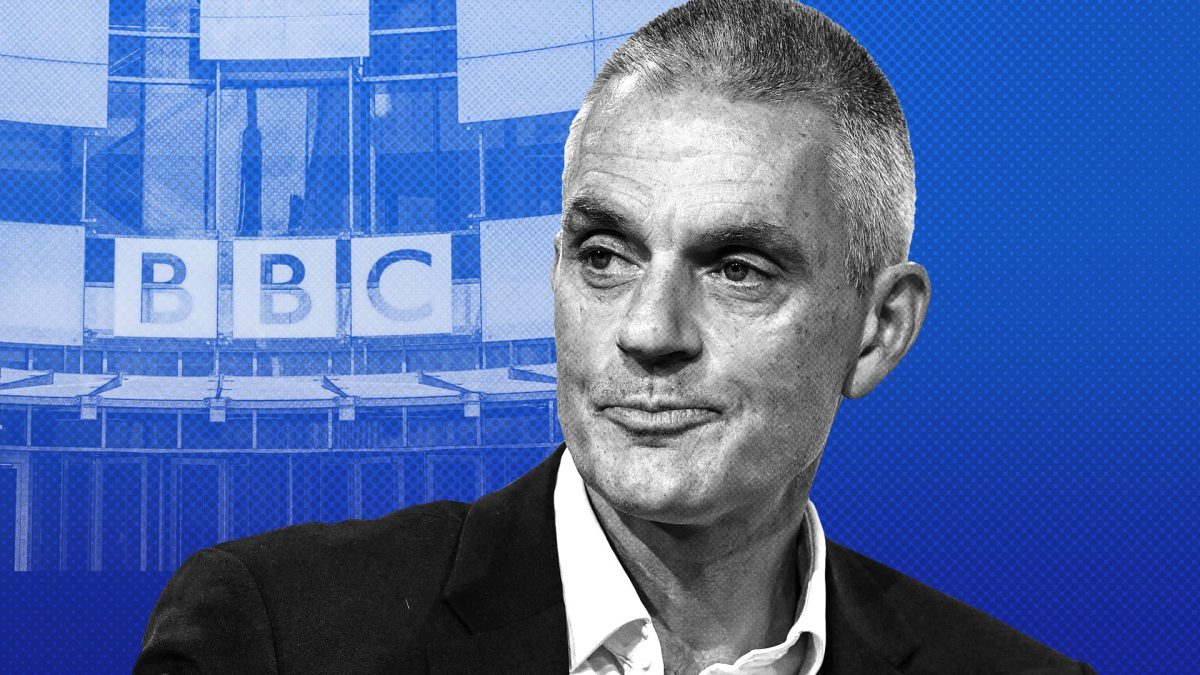A Turbulent Time at the BBC
The BBC has found itself in the spotlight for a series of controversies that have tested its internal structures and leadership. Radio 4’s show When It Hits The Fan features two seasoned crisis managers discussing how to handle corporate disasters, but even they might find themselves overwhelmed by the current situation at BBC HQ. Recent events have included tensions over coverage of the Israel-Gaza conflict, a controversial documentary about a child in the rubble of the Palestinian authority, and the mishandling of an antisemitic outburst by Bob Vylan at Glastonbury. These issues have led to legal battles with employees and a growing sense of internal discord.
Behind the scenes, key figures within the BBC are closely watching each other’s positions as pressure mounts. Tim Davie, the Director General since 2020, Samir Shah, the BBC Chair appointed last year, and Deborah Turness, CEO of BBC News, all publicly support one another. However, the increasing number of crises has created a tense environment where blame is being passed around. As one former board member noted, “This could end up as a circular shooting match.” Neither the government nor Ofcom seems convinced that the current responses will be sufficient.
An internal inquiry revealed that the BBC had breached editorial guidelines by not informing audiences that the narrator of the documentary Gaza: How To Survive A Warzone was the son of a Hamas minister. Despite this, everyone from the Director General down expressed regret and promised changes. However, the lack of clear accountability has led to frustration, particularly from the Culture and Media Secretary, who has demanded more transparency and faster action.
While firings are rare due to employment laws, some individuals are being quietly reassigned or demoted. This has not quelled the growing discontent among staff, who question why responsibility often falls on lower-level employees rather than the top brass. Tim Davie, known for surviving previous crises, remains a central figure, while Deborah Turness faces scrutiny over her editorial decisions and leadership style.
Turness, who was appointed by Davie after a stint at NBC, has come under fire for her handling of the Gaza documentary. Critics, including former BBC executives, have accused her of lacking understanding of the complexities of the conflict. Her comments on the film were met with criticism, highlighting the challenges of maintaining impartiality in a polarized climate.
Meanwhile, the fallout from the MasterChef scandal has led to legal action from John Torode, who was dismissed for using offensive language. His case underscores the broader trend of employees seeking legal representation when disputes arise. This has created a culture where many senior staff feel compelled to hire lawyers, leading to a “David against Goliath” dynamic.
As the BBC navigates these challenges, the future of its leadership remains uncertain. Tim Davie is expected to remain in his role until the charter renewal in 2027, which will determine the broadcaster’s long-term funding. However, the pressures of managing a complex organization during times of division and financial strain are significant. Samir Shah, the new chair, faces his own challenges in establishing credibility and implementing meaningful reforms.
Deborah Turness, despite her high salary and influential position, is under increasing pressure to demonstrate stronger leadership and a clearer vision for the news division. Critics argue that there is too much focus on new projects like Verify, while existing content lacks rigor and depth.
Despite the turmoil, the BBC remains a vital institution both domestically and internationally. Many dedicated professionals continue to work within its walls, striving to maintain quality and integrity. However, the current climate of blame and uncertainty suggests that significant changes may be necessary to ensure the organization can navigate the challenges ahead. The BBC must find a way to address its internal conflicts and rebuild trust with its audience, lest it continue to face the same cycle of crises and recriminations.







